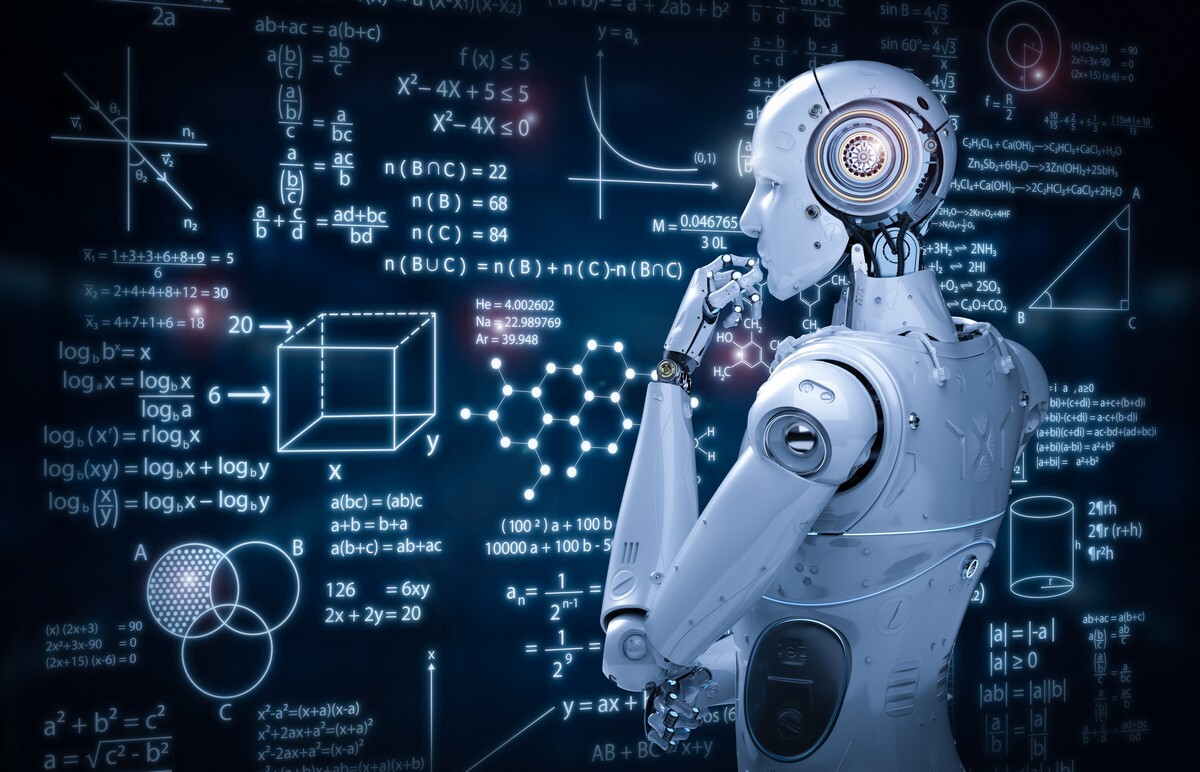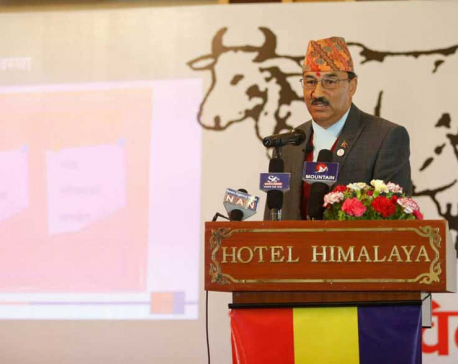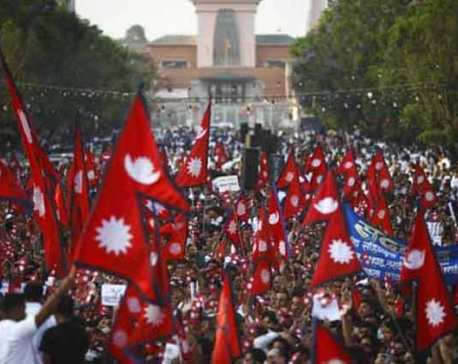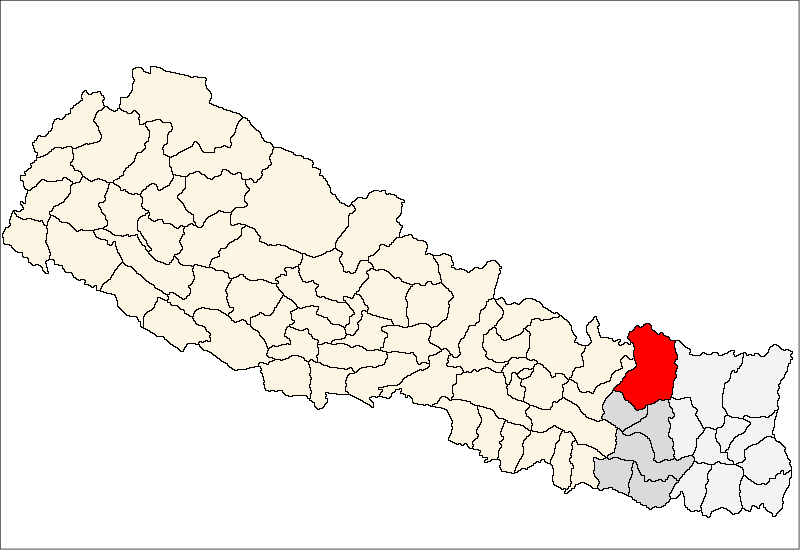
OR
Opinion
A Cyber-Libertarian View on Monarchy
Published On: January 26, 2022 06:30 AM NPT By: Bimal Pratap Shah

What will happen if the AI governance setup of the future feels a monarchy in a democratic setup is preferable to the anarchy created by dysfunctional democracy?
In the not-so-distant future, artificial and human intelligence will merge to become one. Human conditions will no longer be only about biological form as machines become an integral part of us and our societies. Artificial Intelligence (AI) and humans will share autonomy over the world, but the former will make much of the decisions. Humans will certainly have a foundational role in choosing the values and goals of these systems and in creating regulatory frameworks. The important question then is what values humans are going to select for the machines when singularity arrives. Therefore, it is interesting to hypothesize if the human-AI partnership will choose to revive the monarchy in a different role in Nepal, especially at a time when the people’s faith in representative democracy is at an all-time low.
The singularity is a hypothetical future where technology growth is out of control and irreversible. In popular terms, the singularity is why advanced AI transcends human intelligence and cognition, erasing the boundary between humanity and machines. Simply put, AI is the science and practice of designing software and intelligent systems that exhibit artificial intelligent behavior. According to the two American computer scientists Jaron Lanier and E Glen Weyl, “AI is best understood as an ideology rather than as basket algorithms. Lanier and Weyl believe the core of the ideology is that a suite of technologies, designed by a small technical elite, can and should become autonomous and eventually replace, rather than complement, not just individual humans but much of humanity.” At the same time, they have also warned that this ideology promoted by the techno-utopians might inherit the pitfalls of other historical ideologies like the soviet style central-planning-based forms of socialism created by a small elite in the Soviet Communist Party.
AI-based political ideology is slowly finding its way into the mainstream political discourse because many people have lost confidence in institutions of liberal democracy. Political economic institutions of liberal representative democracy have failed to deliver. Instead, the system has aided toward hyper-concentration of wealth and political power among the neo-bourgeoisie. The richest companies, individuals, and regions are the ones closest to the biggest data intelligence systems. They have mastered the art of harnessing data to target people based on vulnerability and if this trajectory continues, pluralistic visions of liberal democratic market societies will lose for sure.
The course correction seems like a herculean task, but change is possible. Taiwan is already on this new path. Almost half of Taiwan’s population have joined a national participatory data-governance and sharing platform. The platform allows citizens to self-organize the use of data, deliberate thoughtfully on collective choices, and vote in innovative ways on civic questions that are important for society. The island nation’s citizens have built a culture of agency over digital technology through participation and collective organization and the good news is this decentralized movement is organically growing pluralistic.
Decentralization embodies the libertarian dream of breaking free from the regulatory influence of governments by bypassing the need for a central decision-making authority. Cyber-libertarians argue “that the technology of decentralization has the power to remove unnecessary inefficient and parasitic middle layers of centralized government institutions to realize a utopian non-territorial blockchain governance.” This cyber-libertarian view is an extension of the machine-enabled industrial revolution that began in the 18th Century. The economic system is now shifting from industrial capitalism to digital capitalism. In industrial capitalism, the economic activity is centered on production and consumption giving rise to an economic system centering on use. The value, in digital capitalism, is created by analyzing data on humans and human activities.
Absolute monarchy might be obsolete, but monarchies are well-received in democracies in many parts of the world. According to Serge Schmemann’s arguments in the New York Times, there are several advantages of having a monarchy in the 21st Century. First, wise monarchs are often able to rise above petty politics and represent the whole country. Also, in many cases, the highest political position in a monarchy cannot be influenced by money, the media, or political parties.
Second, monarchy plays an important role as the institution that unites diverse and often hostile ethnic groups under shared loyalty to the monarch instead of to ethnic or tribal groups. In 2001, the grandson of Afghanistan’s exiled King Mohammed Zahir Shah offered to return to Afghanistan not to rule but to serve as a unifying figurehead to help the country rise above the factionalism and rivalry between various warlords. Third, monarchies prevent the emergence of extreme forms of government like the Taliban of totalitarian military dictatorships. Even though prime ministers are the chief executive, monarchy makes it difficult to radically alter national politics by playing a role of a stabilizing force in the countries by encouraging slow and incremental change avoiding extreme swings in the nature of regimes. The existence of the monarchy is often the only thing holding many countries from the edge of civil war like in Syria, Iraq, and Yemen. If we just look at the Middle East, the countries with monarchies like Saudi Arabia, Bahrain, Jordan, Kuwait, Oman, Qatar, and the UAE are much more stable. Furthermore, the European countries with a monarchy like Denmark, the UK, Sweden, Spain, Luxembourg, Norway, Belgium, and Monaco seem to be performing better.
Finally, monarchies are repositories of tradition and continuity in a constantly changing world reminding people about the country’s past glories and heritage. The heritage of a nation can often be forgotten in the rapidly changing political current. This is the main reason why many Nepali people still have an understandable nostalgia for the monarchy. Maybe not of the days of King Gyanendra’s autocratic ambitions but definitely of King Birendra’s reign that slanted toward democracy. Many times the monarchy seems to be a viable alternative for the 21st Century world when nations face what seems like impossible political instability.
The transition to digital capitalism comes with the promises of AI to reinstate a more direct democracy by strengthening the bond between politicians and the people. In the next 20 years, we will see robots that are literally as smart as humans potentially making decisions that are currently being made by politicians and bureaucrats. Decision-making and policy changes will be decided by artificially intelligent machines harnessing the power of data to make informed decisions for the country as a whole.
The age where most political decisions power will be provided to the super-intelligent machines is very near. Based on big data and not on propaganda, the super-intelligent machines might decide to restore the monarchy as the symbolic unifying and cultural figure, as a father/mother figure, uniting various ethnic and political groups in Nepal if political parties continue to ignore citizens. The monarchy, however, should be able to serve in a guardianship role defined by the people in a very democratic manner suited for the 21st Century. The tides may turn in favor of monarchy as the political parties are damaging the public perception of democracy. It has happened in the past. The monarchy became free after the 104 years of Rana Oligarchy ended. During that time the institution was put under strict house arrest.
What will happen if the AI governance setup of the future feels a monarchy in a democratic setup is preferable to anarchy created by dysfunctional democracy?
You May Like This

RPP for democracy with monarchy
KATHMANDU, Nov 8: The ruling Rastriya Prajatantra Party (RPP) has unveiled its election manifesto on Tuesday advocating democracy with monarchy in... Read More...

Democracy Day: Foundation of Republic in Nepal
KATHMANDU, April 24: The 13th Democracy Day is being celebrated across the country today with fanfare by organizing different programs. Read More...

All should take part in elections in a democracy: German Minister
KATHMANDU, April 5: Dr. Barbara Hendricks, German Minister for Environment, Nature Conservation, Building and Nuclear Safety, has underlined the need... Read More...




Just In
- NEA Provincial Office initiates contract termination process with six companies
- Nepal's ready-made garment exports soar to over 9 billion rupees
- Vote count update: UML candidate continues to maintain lead in Bajhang
- Govt to provide up to Rs 500,000 for building houses affected by natural calamities
- China announces implementation of free visa for Nepali citizens
- NEPSE gains 14.33 points, while daily turnover inclines to Rs 2.68 billion
- Tourists suffer after flight disruption due to adverse weather in Solukhumbu district
- Vote count update: NC maintains lead in Ilam-2














Leave A Comment